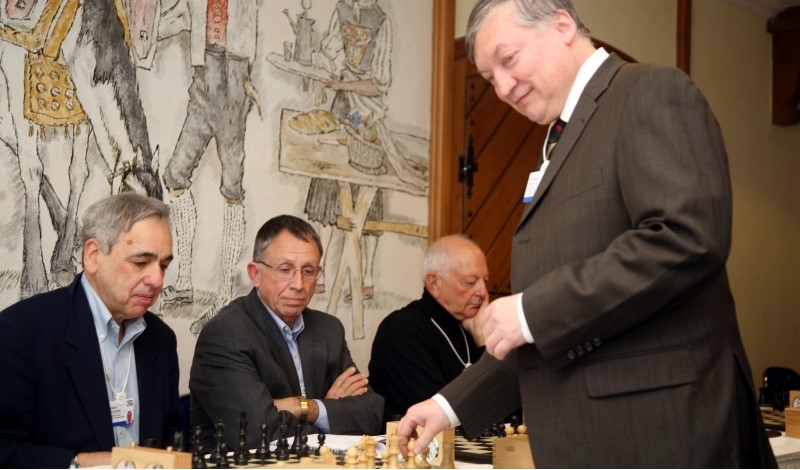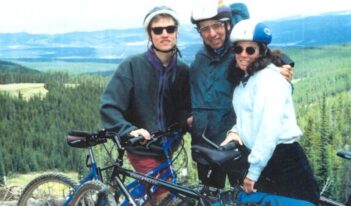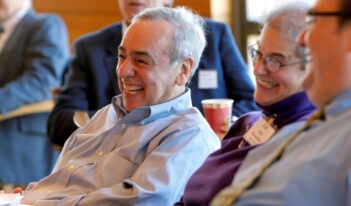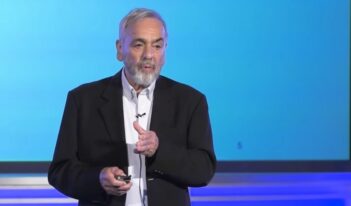
From earthquake preparedness to chess, Howard approached a range of challenges with characteristic verve.
I worked extensively with Howard Kunreuther in the later years of his career, and our efforts resulted in two co-authored books on risk management and enterprise leadership. Howard brought his lifelong devotion to understanding better how individuals and organizations thought about, coped with, and surmounted the uncertainties that plague us all. I added my own longstanding interest in how leaders actively direct their enterprises to face, mitigate, and even capitalize on the risks that companies and countries face.
With active support from the president of Chile, we chronicled how the country came back from one of the greatest earthquakes ever, an 8.8 magnitude event on February 27, 2010. Because Chile’s leadership collected the recovery lessons of that disaster in detail and used these lessons to prepare for the next event, the country was far better equipped when an 8.3 magnitude earthquake struck Chile five years later. “The 2010 earthquake provided us,” an official of the national emergency office told us, with an “enormous learning opportunity.” And as a New York Times headline explained, “Chile Uses Lessons of the Past.”
Finding that Chile’s past had served as a compelling prologue for its comeback—as well as that its president and his cabinet had been key drivers making it so—we turned to how this might also serve as a call to arms for corporate leaders. Drawing on interviews with more than a hundred executives of America’s largest companies, we learned that here, too, a disciplined plumbing of the past—both one’s own and those of others who had faced similar challenges—helped company leaders mitigate or avert their own disasters. Dissecting the causes of British Petroleum’s Deepwater Horizon oil spill in the Gulf of Mexico, for instance, provided indelible lessons for a host of other management teams. These teams learned that behavioral biases, risk appetites, and hazard tolerances would all bear on their own readiness for a disaster. Above all, company leaders learned that it was up to them to model for others better ways to take these psychological factors into account in their decision-making.
I loved working with Howard. Through it all—our time with Chile’s president and cabinet members, interviews with American CEOs, and endless dialogues with one another— he was always engaged and always enthusiastic, with never a down moment.
One instance brought his positive spirit home to me like no other. At an annual meeting of the World Economic Forum in Davos, Switzerland, I learned that a chess grandmaster, Anatoly Karpov, would be playing all takers at the same time in one of the nearby hotels. I casually mentioned this to Howard as he was traipsing through snow around the hotel but heading in the opposite direction. Howard immediately turned around, saying that of course we both had to play. I remember protesting with something like, “Are you out of your mind?” Or it may have been something a bit more colorful. My inner academic thought: it is one thing to research disasters and another to take one on.
We were indeed out of our minds, way beyond what should have been our risk limits. Anatoly Karpov had been the World Chess Champion until he was defeated by none other than Garry Kasparov, and it was thus with great trepidation that we entered the luxury hotel room where even more reporters and television cameras had assembled than had opponents. Two dozen chess boards had been set up, but barely eight of us took seats, and of course Karpov took us all on at the same time, pausing briefly in front of each board to make his killer moves as he repeatedly circled the room. Later, Howard and I confided to one another that we each had embraced the realistic objective of not being the first opponent to be checkmated.
Later that evening as we entered a reception at the World Economic Forum, Howard encountered Anatoly Karpov, who was fluent in English, and the two of them talked, Howard leading the conversation. If I remember right, he told Anatoly that “it was really great to play you,” before they discussed their game down to the details of their last moves.
The brief encounter ended on a mutual high note, each back-slapping the other, and through it all Howard was the engaged and exuberant good fellow, even giving Karpov a little advice of his own along the way. Howard may have lost that game—of course, we all did—but like so much of Howard’s life, his zest and engagement had carried the later encounter. I was not the least bit surprised. His enthusiasm had already carried me through hundreds upon hundreds of hours of our making mutual sense together of risk management and enterprise leadership.
This essay is part of a series celebrating the life and scholarship of Howard Kunreuther, titled “Commemorating Howard Kunreuther.”




